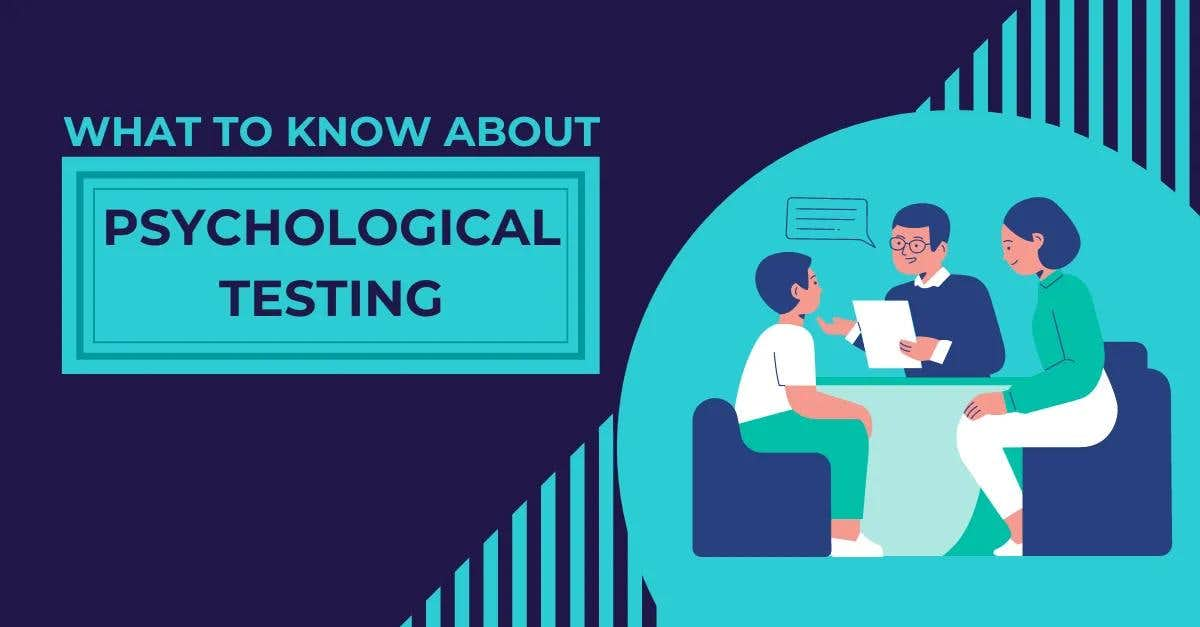January 26th, 2021

Psychological testing is a specialized, in-depth procedure to evaluate an individual’s intellectual skills, academic skills, personality features, emotional well-being, and coping styles. The various instruments and measures used in the psychological testing process can help individual patients, significant others, and medical providers understand a client in different ways compared to an interview or outpatient psychotherapy.
Unlike psychotherapy, the psychological testing process is more structured in its goal to evaluate, diagnose, and offer recommendations to address a patient’s concerns. Psychological testing is only conducted by licensed psychologists or supervised graduate students. Testing psychologists hold doctorates (Ph.D. or PsyD) in psychology (typically including clinical psychologists, neuropsychologists, or educational psychologists). Testing psychologists complete graduate-level coursework, several years of supervised training in psychological testing, and have trained with administering & interpreting a range of psychological tests.

While psychological testing can be initiated by an individual patient, often it is a parent, educator, medical provider, or therapist who refers an individual for psychological testing. Common reasons for psychological testing referrals include:
The goal of these evaluations is to diagnose disorders, develop a treatment plan to increase the overall quality of life, and improve emotional functioning for our patients.
The psychological testing process begins with an initial appointment. During this appointment, you will meet with the testing psychologist, who will ask about the extent and impact of the individual’s specific concerns, along with other background information (eg. medical history, education/occupational functioning, other mental health histories). This initial appointment will guide the psychologist in selecting an individualized “battery,” or set of measures that address the individual’s presenting concerns.
A full psychological evaluation report will include:
Following completion of the testing process, feedback sessions are scheduled to review the results, answer questions, and discuss next steps regarding the evaluation. The entire testing process can involve up to five appointments and take multiple weeks to complete from start to finish.

Following the initial appointment, the testing psychologist will schedule several appointments to administer a range of standardized assessments. Standardized assessments can include the following:
One defining feature of psychological testing measures is that they are standardized. Measures that are standardized allow the clinician to compare the client to a broader normative group (eg. comparing the patient with a group that is similar in age, or amongst individuals in treatment). Comparisons are also made based on other features (eg. based on gender identity, treatment group, etc).

Our psychologists at Clarity Clinic can provide various psychological assessments via secure videoconferencing platforms. Similar to in-office psychological testing counterparts, online testing measures are standardized. While this testing can be completed in the comfort of one’s home, it is important the evaluation is completed in private free from distractions for extended periods of time.
This is important since the goal is to replicate in-office psychological testing as much as possible. Online psychological testing also requires reliable internet access, along with a laptop/desktop that has a webcam.
There are various testing measures and protocols which require some aspects to be completed in-person to arrive at an accurate and thorough diagnosis. As a healthcare clinic focused on continuing to minimize the spread of COVID-19, Clarity Clinic is still taking all the necessary safety precautions (required masks, hand sanitizer stations, plexiglass barriers).

For children and adolescents, psychological testing is often recommended by parents, teachers, or other school personnel. When conducting psychological testing with children, there is a strong emphasis on collecting information from parents/guardians and/or teachers on the child’s behaviors, emotions, and academic skills both at home and in the school environment.
In children, psychological testing is often recommended when there are questions about attention deficit, academic concerns, or behavioral/emotional challenges. Often, psychological testing can provide support for special education services (eg. Individualized Education Plan, IEP, or 504 Plan accommodations).
Written By: Reggie Pacheco, PsyD.
At Clarity Clinic, we have highly trained staff who specialize in therapy and psychiatry services. To learn more about how we can support your mental health, call Clarity Clinic at (312) 815-9660 or schedule an appointment today.

Our Services
Virtual/Online CarePHP and IOPAdult PsychiatryChild & Adolescent PsychiatryAdult TherapyChild & Adolescent TherapyCouples CounselingFamily TherapyGroup TherapyPsychological TestingTranscranial Magnetic Stimulation (TMS)Resources
Refer a PatientCareersClinical Training OpportunitiesOur ProvidersFree Mental Health TestsCommonly Prescribed MedicationsLocationsBlogIn The NewsClarity Through CharityClarity for AllQuick Links
Patient PortalFAQsAccepted InsurancesContact us